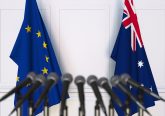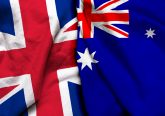Trade policy today faces three issues that are often overlooked in current debate around post-Trump transatlantic and post-Brexit global trade policy: development, geopolitics, and the digital economy. All three are in desperate need of clarification. And, they need to be clearly integrated in current political science and economic analyses if we are to find a way to advance trade and economic interdependence without in the years ahead.
Development
Trade history since Bretton Woods generally gives too little weight to the development agenda as it emerged from decolonisation and the founding of UN Conference on Trade and Development (UNCTAD). The incorporation of development logic in the General Agreement on Tariffs and Trade (GATT) was a slow process. It consisted of asymmetrical tariff elimination and a regulatory free ride under the Generalised Preferences system, but with asymmetrical protectionism wherever “third world” capabilities seemed too disruptive (think textiles and clothing) .
Politically, too, developing countries took an active part in GATT work only during the Uruguay Round, and even then the end-game was essentially settled by the big and rich, with the final cut a bilateral US-EU product. The Trans-Pacific Partnership (TPP), the Trade in Services Agreement (TiSA), and the Regional Comprehensive Economic Partnership (RCEP) all do somewhat better in terms of participation, but all three are stalled as we await the results of US regime change.
In this century, Europe (and perhaps the UK) remains strongly committed to development aid. But it is increasingly hard to accept that developing states such as China and Cameroon remain free to determine to what extent they join the open economic system, as opposed to seeking advantage from unilateral tariff concessions.
The growing diversity of “developing nations” reaches all the way to the top. China is unique both in its rate of growth and in its growing share of global trade, dwarfing even the Japanese miracle. On a positive reading, Chinese leadership is growing too. China in G20 in 2016 has focused on issues from global finance to innovation that the “West” had been reluctant to deal with. But the statesmanship shown in G20 has yet to extend to the handling of Chinese integration in the practice of trade, whether by Beijing or by its partners. China cannot be ignored, so its presence will either boost WTO, if it decides to play by the rules, or destroy it if—even against Chinese wishes—it remains simply an obstacle to progress.
This is the first great conundrum of trade power politics in the twenty-first century: will the multilateral system successfully accommodate the economic and commercial strategies of Brazil, India, China and Russia and grow, or will the disparity between WTO norms and these countries’ growth paths and attitudes to cooperation have become too great for a single set of rules effectively to prevail? This depends as much on the will of partners—think of the successful if difficult path taken by and towards Japan—as on the multilateral machinery of governance; and is as much a challenge for long-term members as for newcomers.
Geopolitics
The second challenge is that of geopolitics. GATT was born in a moment of optimistic geopolitics, with Cuba and other liberal countries as founder members before the post-war communist tsunami descended on the world.
During the Cold War, geopolitics was difficult (the UN was largely in P5 stalemate), but the model for trade was clear. The GATT was effectively run by the Free World, coupled with broader policy direction from the Bretton Woods institutions, OECD and, later, G7. The model survived COMECON and reached its apotheosis in the creation of the WTO as a first fruit of the fall of the Berlin Wall.
Subsequent history has seen a “revenge of history”, as powerful authoritarian states play an increasing role in the trade game, but refuse to play by the same rules.
“Western” hegemony in the form of a US-EU duopoly is slowly giving way to an order with the full and equal presence also of China. Meanwhile, Russia—whose recent actions led commentators to lament the start of a new Cold War—continues to make its mark on global trade. The country has real stakes in the global manufacturing, service and technology economy, albeit far below that of Beijing. India so far makes the headlines by blocking progress rather than shaping it: but that can change quickly, given the depth of Indian government trade expertise.
Today, it is increasingly difficult to achieve progress in a world where the top table no longer reflects any consensus view of the world. The Doha Development talks died. The success of the Deauville 2011 G8 was followed by a string of failures, including Sino-Russian diplomatic blockage, the inability to do anything about it, followed by the exclusion of Russia from the club (as well as the Snowden revelations).
These developments demonstrate that the status quo is not fit for purpose. But we have yet to cobble together any working alternative model.
What should that model be? Will a return to the Cold War mean that no deals will be made? Or can there be a realpolitik of economic cooperation in spite of these newly emerging tensions? And, if so, on the basis of what minimum modus vivendi?
Either way, the minimum condition is that the rules of world trade be seen by all actors as respecting their collective economic security. This is a big hurdle. For one, Russian attitudes to sanctions remind us of the Cold War truth that hitting the general population and civilian economy is ineffective (even if right). And, even the states of the old “Free World” today have diverging views on the free flow of sensitive personal data across national borders. Indeed, geopolitics may have less impact on trade in the next decade than the new technological realities of the current so-called Fourth Industrial Revolution.
The digital economy
The third—and potentially greatest—issue of the international economy is the possible irrelevance of trade policy as we know it to the digitalised economy.
The twenty-first century is a multipolar version of the Westphalian world, as ushered in by the fall of the Berlin Wall. We increasingly live the radical pluralism of an age where citizens and corporations and networks can cooperate, deploy power and sustainably circumvent not necessarily the law, but the institutions of the state. The end of nation-state monopoly is indeed a challenge; but one to which only pessimistic observers have given credence. In this view, the WTO is a hollow institution, replicating only the continued formal activism of, for example, the League of Nations that preceded it, without significantly delaying, its collapse.
Since the 1990s, WTO has attempted to open up to new actors, but always by listening rather than empowering. In this, it has done no worse than most other traditional structures. Co-creation as opposed to consultation has so far been beyond the wit of WTO, for want of any shared model of NGO involvement among the members. In the Internet age, there are glimpses of a successful co-creative game. Take for example the crowd-sourced Icelandic constitution, the participative budget pilots of Paris, or the “Future of Data Forum” that guides government use of Big Data in New Zealand. Multilateral institutions fail to implement similar strategies.
The need for a new and broader agenda for the liberalisation of trade and investment is more broadly acknowledged.
Ever since the 1940s, The challenge has been to balance core rules and liberalisation on a basis that is effective and visibly sustainable. The theory has always pointed to an agenda wider than the preservation of national control would bear or that the collective governance could manage.
Despite its extension in the Uruguay Round, the WTO struggles to address intangibles and investment and is silent on data. GATT took decades to fully control tariffs, so this is perhaps not a surprise, but it is not clear that the world can wait as patiently as in the 1950s and 60s. Much is written of the shifting shape of and parallelism between global value chains, and almost as much on the crucial role of data as the new life-blood of the economy. We contemplate a world where re-shoring and local manufacturing are once again viable options, but also where global free flow of data and of skilled data engineers becomes more vital than many flows of goods or services.
TTIP and TPP and CETA are essentially WTO-based deals, so their successful ratification will not offer the new frame. So it is at least one advantage of the current crises that they push all trade thinkers to reflect on out-of-the-box as well as incremental solutions and strategies.
The starting materials for a new model are to hand in the charges brought against trade liberalisation. In part, we see, especially in the words of the UK Prime Minister, old truths such as the need for effective adjustment assistance; the need for a fit tool-box for the construction of sustained advantage through education and skills, infrastructure and collective strategy at local and national levels. But, we also see newer elements, such as the search for a common sense of how to manage the free flow of data, lifeblood of the new economy.
Data is a good example of how far-reaching and complex a “new issue” can be. How to assure at least the citizens of the free world that (without losing national security sovereignty) their different national governments have a shared and coherent approach to assessing the proportionality of departures from norms protecting personal privacy? How to use trade rules and standards to drive collective cyber-security by design?
The substantive re-mapping of this and similar issues (for competition and state aids regimes) for the Internet Age is not the biggest difficulty of the exercise. Rather, the devil lies in the detailed sharing out of the task-list between different actors, including WTO and other multilateral and plurilateral rule-making and negotiating for a, OECD and other best practice fora, and national actors.
It is clear, at least, that trade negotiations and trade dispute mechanisms cannot be made responsible for everything. The Anti-Counterfeiting Trade Agreement (ACTA), as much as Seattle, show that trade cannot, however, be expected to show a reasonable success rate for its negotiating effort if trade processes are not accompanied by a fairly complete set of flanking measures. Trade can neither be liberalised successfully in a silo, far away from the impact of globalisation, nor can it be burdened with the responsibility for fixing all the assorted and vaguely associated evils of the planet. Whether within WTO, as domestic or plurilateral flanking measures for trade, or as fully fledged parallel policies, we need increased collective effort around an ever-lengthening agenda, which itself is harder to achieve in the G20 than in the G7 age.
Economic disparities, fundamental geo-political misalignments and the new challenges of a fourth industrial revolution—any response to Brexit and transatlantic trade must take account of these major challenges of our time, which, when properly handled can represent opportunity; but, if ignored, will nullify even the best-intended initiatives in global trade.






